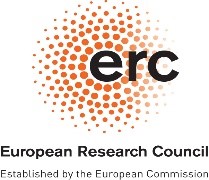Received:
2019-02-18 | Accepted:
2019-12-20 | Published:
2020-03-30
Title
Terrorism activities influence on financial stock markets: an empirical evidence from United Kingdom, India, France, Pakistan, Spain and America
Abstract
The aim of this study is to investigate the impact of terrorism activities on five developing and developed economies and their financial markets. Five countries selected for analysis include Spain, United Kingdom, India, Pakistan, United States of America and France. The variables under consideration are terrorism activities and market return of the financial stock markets. This study contains time series data collected on daily basis from 1st Jan 2001 to 31st Dec 2018. Study utilized deductive research approach with quantitative data. A linear regression model is used to estimate the effect of terrorist activities on the market return of the financial stock markets of the selected countries. The results of the model suggest that the market return is very much affected by the occurrence of such terror events and the model is overall statistically significant. The results of this study are consistent with the results of Freytag et al. (2009) and Bas et al., (2017) studies which show that there is significant influence of terrorism activities on financial stock market of five selected countries. This study is very significant and essential for investors and analysts as it helps them to understand how terror factors influence stock market and the right time to invest or exit the market. Findings of the study highlight and explain how terrorism activities influence the overall market return.
Keywords
terrorism activities, financial stock market, linear regression model, quantitative analysis, deductive approach
JEL classifications
G23
URI
http://jssidoi.org/ird/article/30
DOI
HAL
Pages
443-455
Funding
This research was partly supported by the project, which has received funding from the European Union's Horizon 2020 research and innovation programme European Research Council (ERC) (Grant Agreement Number 830892)
This is an open access issue and all published articles are licensed under a
Creative Commons Attribution 4.0 International License
References
Abadie, A., & Gardeazabal, J. 2008. Terrorism and the world economy. European Economic Review, 52(1), 1-27. https://ideas.repec.org/a/eee/eecrev/v52y2008i1p1-27.html
Search via ReFindit
Alam, A. 2012. Terrorism and stock market development: causality evidence from Pakistan. Journal of Financial Crime, 20(1), 116-128. https://doi.org/10.1108/13590791311287364
Search via ReFindit
Aslam, F., Kang, H. G., Mohti, W., Rafique, A., & Salman, A. 2015. The impact of terrorism on financial markets: Evidence from Asia. The Singapore Economic Review, 1550111. https://doi.org/10.1142/S0217590815501118
Search via ReFindit
Bas choudhary, A., & Shughart, W. F. 2017. On ethnic conflict and the origins of transnational terrorism. Defence and Peace Economics, 21(1), 65-87. https://www.tandfonline.com/doi/abs/10.1080/10242690902868343
Search via ReFindit
Becker, G. S. 1968. Crime and punishment: An economic approach. In The economic dimensions of crime (pp. 13-68). Palgrave Macmillan, London. https://link.springer.com/chapter/10.1007/978-1-349-62853-7_2
Search via ReFindit
Benmelech, E., & Berrebi, C. 2007. Human capital and the productivity of suicide bombers. Journal of Economic Perspectives, 21(3), 223-238. https://www.jstor.org/stable/30033742?seq=1
Search via ReFindit
Berrebi, C. 2007. Evidence about the link between education, poverty and terrorism among Palestinians. Peace Economics, Peace Science and Public Policy, 13(1). https://www.degruyter.com/view/j/peps.2007.13.issue-1/peps.2007.13.1.1101
Search via ReFindit
Blomberg, S. B., Hess, G. D., & Orphanides, A. 2004. The macroeconomic consequences of terrorism. Journal of monetary economics, 51(5), 1007-1032. https://ideas.repec.org/a/eee/moneco/v51y2004i5p1007-1032.html
Search via ReFindit
Chen, A. H., Siems, T. F. 2004. The effects of terrorism on global capital markets. European journal of political economy, 20(2), 349-366. https://doi.org/10.1016/j.ejpoleco.2003.12.005
Search via ReFindit
Chesney, M., Reshetar, G., & Karaman, M. 2010. The impact of terrorism on financial markets: An empirical study. Journal of Banking & Finance, 35(2), 253-267. https://doi.org/10.1016/j.jbankfin.2010.07.026
Search via ReFindit
Crain, N. V., & Crain, W. M. 2006. Terrorized economies. Public Choice, 128(1-2), 317-349. https://doi.org/10.1007/s11127-006-9056-6
Search via ReFindit
De Mesquita, E. B. 2005. The quality of terror. American Journal of Political Science, 49(3), 515-530. https://onlinelibrary.wiley.com/doi/abs/10.1111/j.1540-5907.2005.00139.x
Search via ReFindit
Enders, W., & Sandler, T. 2007. An economic perspective on transnational terrorism. In The Economic Analysis of Terrorism (pp. 29-44). Routledge. https://www.econstor.eu/bitstream/10419/119374/1/diw_econsec0045.pdf
Search via ReFindit
Freytag, A., Krüger, J. J., Meierrieks, D., & Schneider, F. G. 2009. The origins of terrorism cross-country estimates on socio-economic determinants of terrorism (No. 2009, 009). Jena economic research papers. http://zs.thulb.uni-jena.de/receive/jportal_jparticle_00142567
Search via ReFindit
Hillman, A. L. 2007. Economic and security consequences of supreme values. Public Choice, 131(3-4), 259-280. https://doi.org/10.1007/s11127-007-9167-8
Search via ReFindit
Hobijn, B. 2002. What will homeland security cost? Federal Reserve Bank of New York Economic Policy Review. https://www.newyorkfed.org/research/epr/02v08n2/0211hobi/0211hobi.html
Search via ReFindit
Krueger, A. B., & Maleckova, J. 2002. Education, poverty, political violence and terrorism: is there a causal connection? (No. w9074). National Bureau of Economic Research https://doi.org/10.3386/w9074
Search via ReFindit
Krueger, A. B., & Malečková, J. 2003. Education, poverty and terrorism: Is there a causal connection? Journal of Economic perspectives, 17(4), 119-144. https://doi.org/10.1257/089533003772034925
Search via ReFindit
Kumaraswamy, S., Ebrahim, R.H., Wan Mohammad, W.M. 2019. Dividend policy and stock price volatility in Indian capital market. Entrepreneurship and Sustainability Issues, 7(2), 862-874. http://doi.org/10.9770/jesi.2019.7.2(5)
Search via ReFindit
Lacker, J. M. 2004. Payment system disruptions and the Federal Reserve following September 11, 2001. Journal of Monetary Economics, 51(5), 935-965. https://ideas.repec.org/a/eee/moneco/v51y2004i5p935-965.html
Search via ReFindit
Lenain, P., Bonturi, M., & Koen, V. 2002. The economic consequences of terrorism. OECD Working Paper. https://doi.org/10.1787/511778841283
Search via ReFindit
Neumayer, E. 2004. The impact of political violence on tourism: Dynamic cross-national estimation. Journal of Conflict Resolution, 48(2), 259-281. https://doi.org/10.1177/0022002703262358
Search via ReFindit
Peker, S., Aktan, B., Tvaronavičienė, M. 2017. Clustering in key G-7 stock market indices: an innovative approach. Marketing and Management of Innovations, 1, 300-310, http://doi.org/10.21272/mmi.2017.1-27
Search via ReFindit
Sandler, T., & Enders, W. 2008. Economic consequences of terrorism in developed and developing countries. Terrorism, Economic Development, And Political Openness, 17. https://doi.org/10.1017/CBO9780511754388.002
Search via ReFindit
Schwert, G. W. 1981. Using financial data to measure effects of regulation. The Journal of Law and Economics, 24(1), 121-158. http://schwert.ssb.rochester.edu/regul.htm
Search via ReFindit
Shughart, W. F. 2006. An analytical history of terrorism, 1945–2000. Public Choice, 128(1-2), 7-39. https://doi.org/10.1007/s11127-006-9043-y
Search via ReFindit
Tavares, J. 2004. The open society assesses its enemies: shocks, disasters and terrorist attacks. Journal of Monetary Economics, 51(5), 1039-1070. https://doi.org/10.1016/j.jmoneco.2004.04.009
Search via ReFindit












 RSS 1.0
RSS 1.0